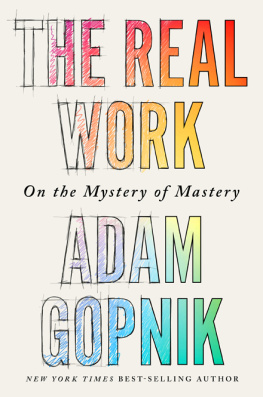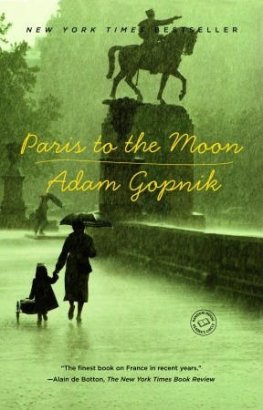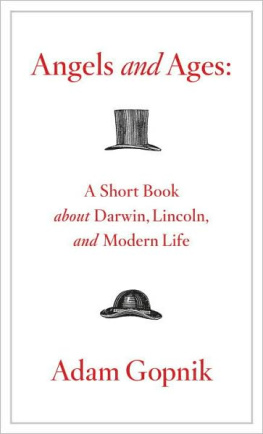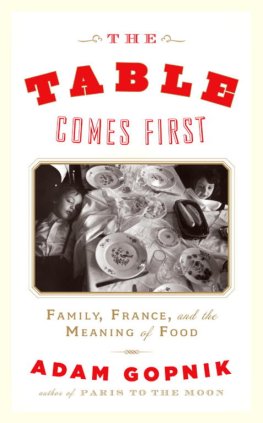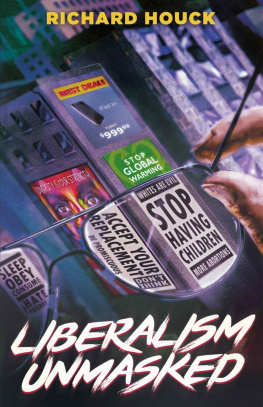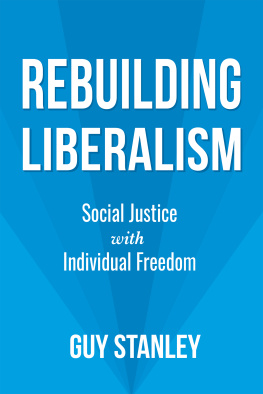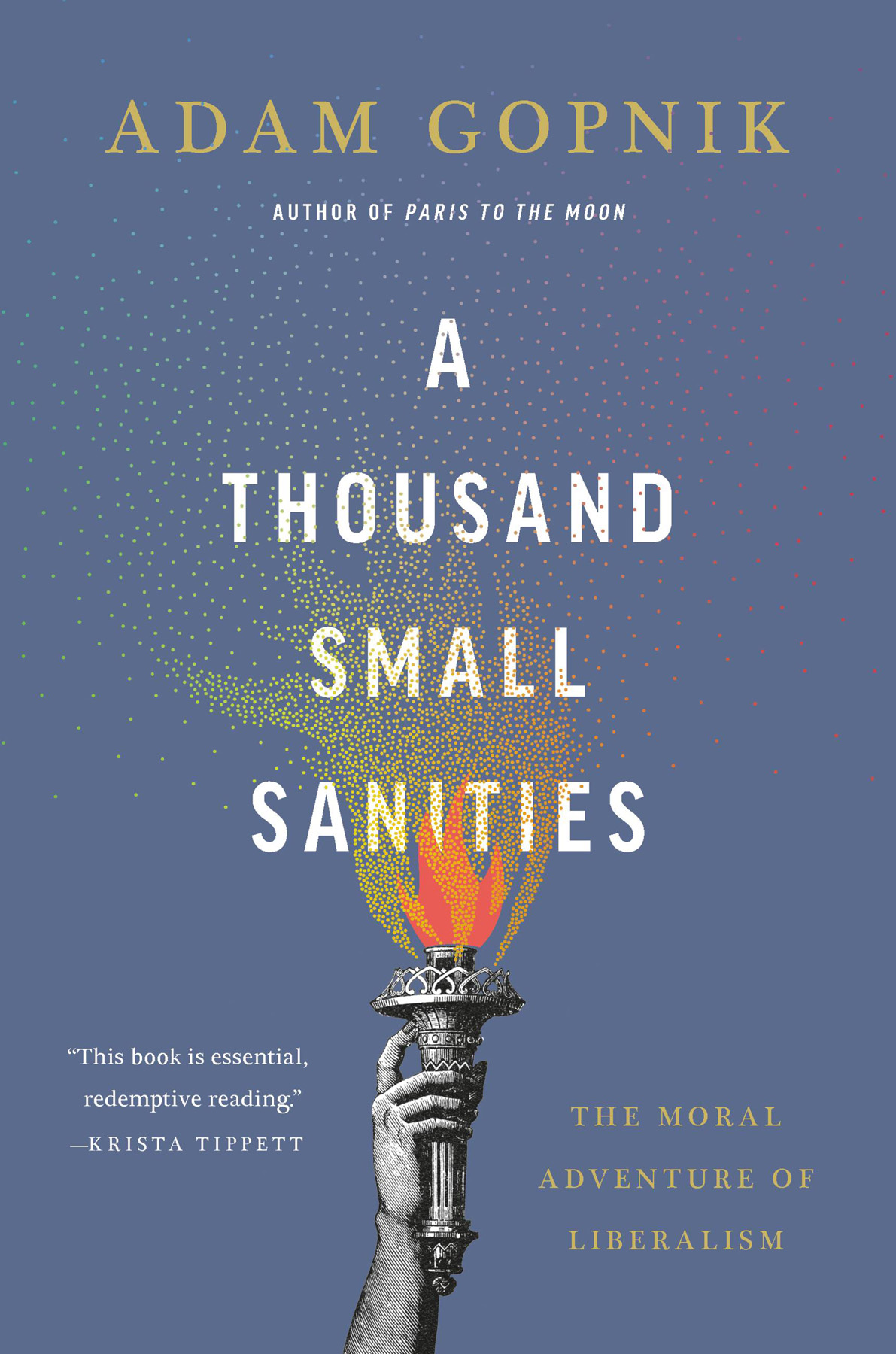O N THE night of the November 2016 election, my seventeen-year-old daughter Olivia, politically aware and intelligently skeptical of all progressive pieties, particularly her fathers, was so shocked and troubled by the result that I put my arm around her and together we went for a long walk in the early morning hours around our New York neighborhood. I tried to give her a hopeful attitude in a startling moment. I explained to her why the liberal and humanist values that she had been brought up with were not just some family legacy of attitudes, and attitudinizing, but ideals that were made reliable by experience and proven true by history. I reassured her that democracy flowed from the ground up, and as long as the space of common action was available, no one bad leader could affect it. I showed her how to connect the remote and dry and sterile-seeming ideas that she was learning in history class with the crisis we were now in and how some of those ideas might even show us the way out. She came back home with her spine stiffened and her hopes a little higher.
Well, obviously not. Like every parent on every such occasion, I stumbled and sought for words and didnt find them and found instead my arm around her shoulder and hers around mine. (I am a short man, and she is already my height.) My actual words were, of course, much less confident, or clear, or ambitiouseven a middle-aged essayist with a taste for epigrams couldnt claim any kind of aphoristic subtlety, not on a night of such discordance. She neededwe neededsimply to connect. (I noted that she felt better when she turned back, inevitably, to her cell phone and its firecracker explosions of distraught emotion from her ever-encirclingand endlessly textingfriends).
She wasnt shocked because of the rise to power of an opposition partyor if she had been I wouldnt have been particularly sympathetic, the oscillation of parties in power in a democracy being as natural as rain. No, she was shocked by the sudden appearance in her life of the specter of an oafish (and, not incidentally, predatory) authoritarianism, suddenly threatening to annihilate the system of values that she had been brought up to respect. It wasnt that her team lost. It was that for the first time in her lifein my life, toothe rules of the democratic game seemed under assault.
In the years since, as she has gone on to graduate from high school, things have only become more frightening, and the liberal tradition in still greater danger. It isnt just an issue of the survival of democracyafter all Iran and Russia are both ostensibly democratic. It is the practice of liberal democracy, that magical marriage of free individuals and fair lawsof the pursuit of happiness, each to her own joy, with the practice of disinterested justice, everyone treated the same.
Everywhere we look, throughout Europe as much as in America, patriotism is being replaced with nationalism, pluralism by tribalism, impersonal justice by the tyrannical whim of autocrats who think only to punish their enemies and reward their hitmen. Many of these have gained power by democratic means, but they have kept power by illiberal ones. The death of liberal democracy is announced now with the same certainty that its triumph was proclaimed a mere twenty years before. If in America the authoritarian nightmare has so far turned out to be more like Goodfellas than 1984well, as the fine film The Death of Stalin showed us, Goodfellas in power was exactly what the evilest kind of authoritarianism could look like.
Yet where could one find for her a real and unapologetic contemporary defense of liberalism? What is liberalism, even? In America it means, vaguely, the politics of the center of the Democratic Party. For nostalgics, it means Barack Obama. For nostalgic depressives, it can mean Michael Dukakis. (For despairing nostalgic depressives, it can mean Michael Dukakis in a tank.) Though in Canada liberals unafraid to be called so are often in power, in Britain, the liberal temperament has been largely hived off to the right wing of Labour and the left wing of the Conservative Party. In France whats called liberalism is actually more like what we call libertarianism, while the same tradition that produces our liberalism is more often called republicanism (which, of course, has nothing to do with what we call Republicanism).
Well, words change meaning all the time, over time, and in different places. But whatever liberalism is, no one likes it. In right-wing polemics, liberals are conflated with true left-wing radicals (who, in fact, hate liberals every bit as much as the right wing does, even if the right often misses this). And so, a nonexistent imaginary monster, the left-liberal, is invented. (Its pretty much guaranteed that any time you see that creature, the left-liberal, all serious argument will vanish in its wake.) Among the actual left, the liberal becomes still another imaginary monster, the dreaded neoliberal. If, to borrow a conception from Lewis Carrolls great poem The Hunting of the Snark (where there are two monsters, one bad, the other worse, being pursued by a strange Carrollian hunting party), the left-liberal of right-wing polemics is a Snark, a hideous creature, then the neoliberal of left-wing imagination is actually a Boojuma creature so horrible that it can hardly be glimpsed or identified.


